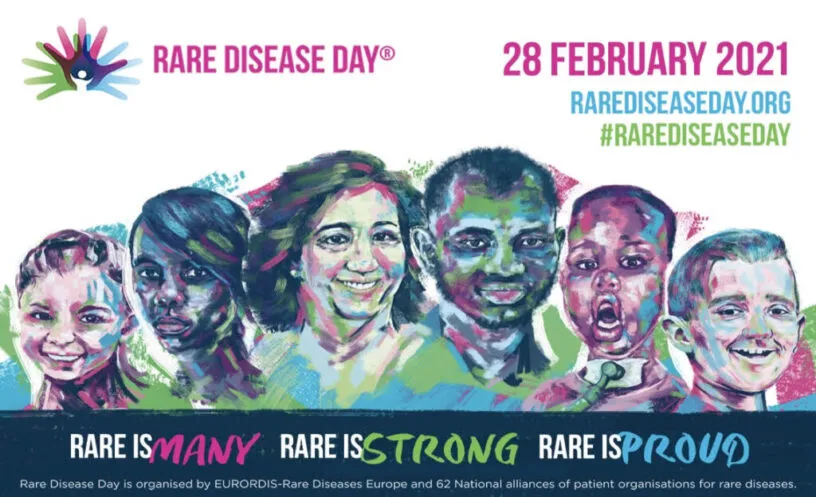
Rare diseases affect over 400 million people worldwide—over 7,000 rare diseases have been identified in the U.S. alone, and only 500 therapies have been approved. From identifying and retaining patients to discovering biomarkers, accelerating diagnosis, and delivering insights into complex patient populations, Medidata advances rare disease trials by expediting outcomes and improving experiences. Technology connects experts, researchers, and clinicians globally to deliver seamless end-to-end clinical operations, data integration, quality control, and analysis.
Rare Disease Day occurs on the last day of February each year—in 2021 it falls on February 28. According to the National Organization for Rare Disorders (NORD), the national sponsor of rare disease day, “The main objective of Rare Disease Day is to raise awareness amongst the general public and decision-makers about rare diseases and their impact on patients’ lives.” Medidata participates in Rare Disease Day every year to spread awareness and support those affected by rare diseases.
Key challenges for rare disease clinical research include patient recruitment, patient retention, limited data, clinical targets, and clinical trial execution. Medidata has the solutions and experience to meet these challenges, with technology that supports 1,635+ rare disease studies across 287+ unique sponsors and 80,000+ sites set up to conduct rare disease trials. As of January 2021, over 245,000 patients have been enrolled in rare disease trials supported by Medidata (according to the U.S. definition of rare disease).
Medidata conducts targeted research to understand the challenges of rare disease research, and our dedicated Patient Design Studio addresses patient challenges and we partner on rare disease research with the following organizations:
Castleman Disease Collaborative Network
The Castleman Disease Collaborative Network (CDCN) and Medidata collaborated in the first use of serum proteomics data to identify early indicators of response to treatment in Castleman disease by using machine learning technology. “We're using omics to double rare disease patients' chance to respond to therapy. This is precision medicine.” —Dr. David Fajgenbaum Castleman Patient and Executive Director
Project ALS
Medidata and Project ALS have launched a partnership to accelerate new treatment strategies and uncover disease subtypes in this progressive, neurodegenerative disorder by analyzing clinical and proteomic data. “ALS is a complex, heterogeneous disease, and treatment of its various forms may require specific therapies targeting distinct ALS subtypes. We are working with Medidata to define these subtypes, and to develop a precision medicine approach to our treatment of ALS.” —Neil Shneider, MD, PhD, Project ALS Research Advisory Board member
NORD Corporate Council
The National Organization for Rare Disorders (NORD) is the leading patient advocacy organization dedicated to individuals with rare disease and the organizations that serve them. In addition to participating in Rare Disease Day, Medidata is a corporate council member and part of the Patient Advocacy and Engagement Working Group.
Medidata is also working with two rare disease organizations in our Social Innovation Lab this year—the UK-based Cambridge Rare Disease Network, an organization that brings together stakeholders from research, industry, business, healthcare, and rare disease advocacy groups and Mission:Cure, an organization working to find a cure for rare forms of Chronic Pancreatitis. Employees in the lab utilize their skills to work on high priority projects for non-profit organizations.
Learn more about how Medidata supports rare disease clinical trials.
Contact Us
